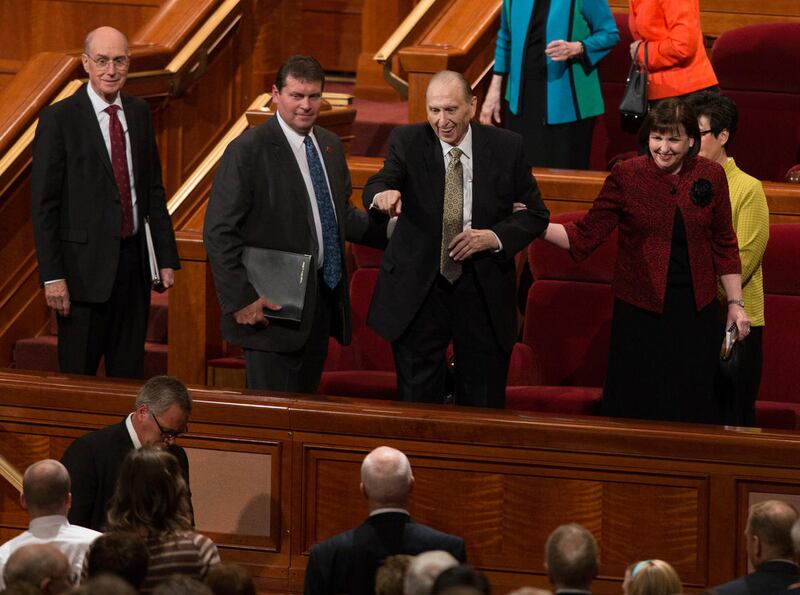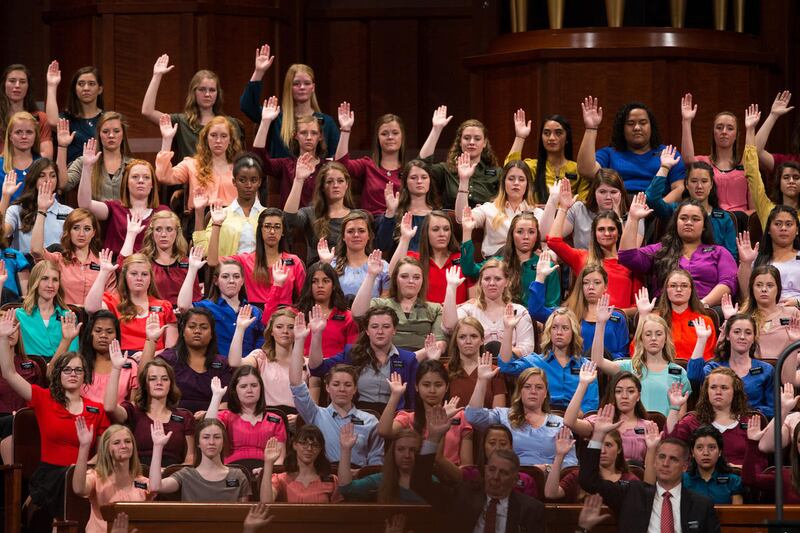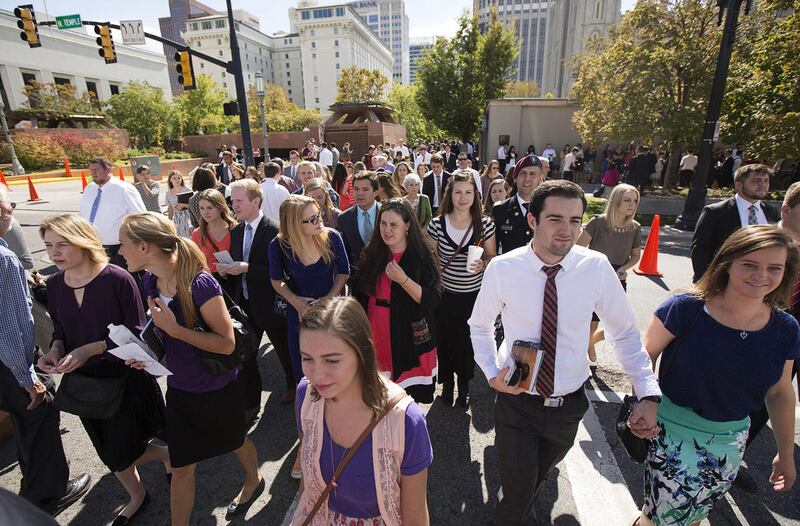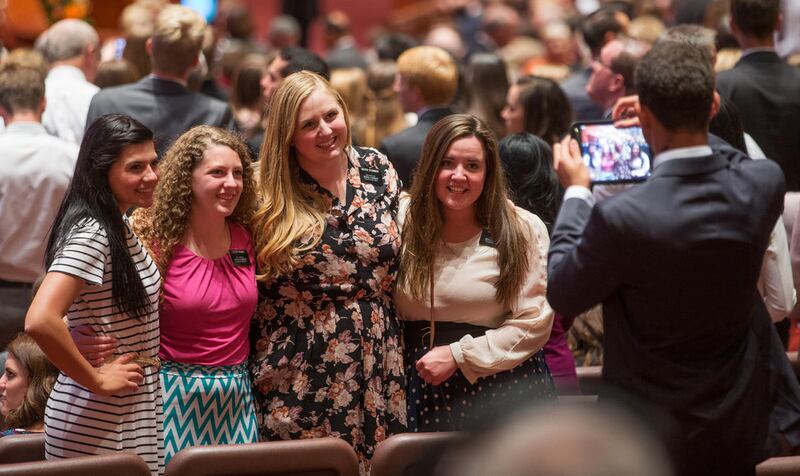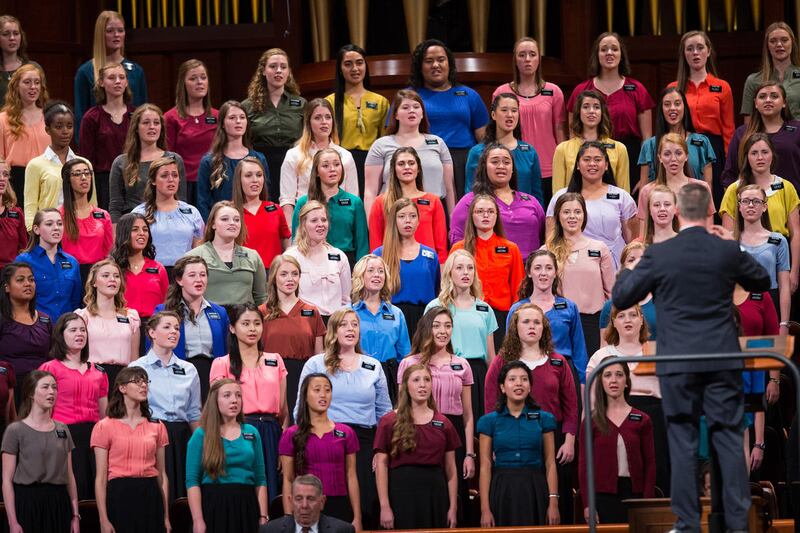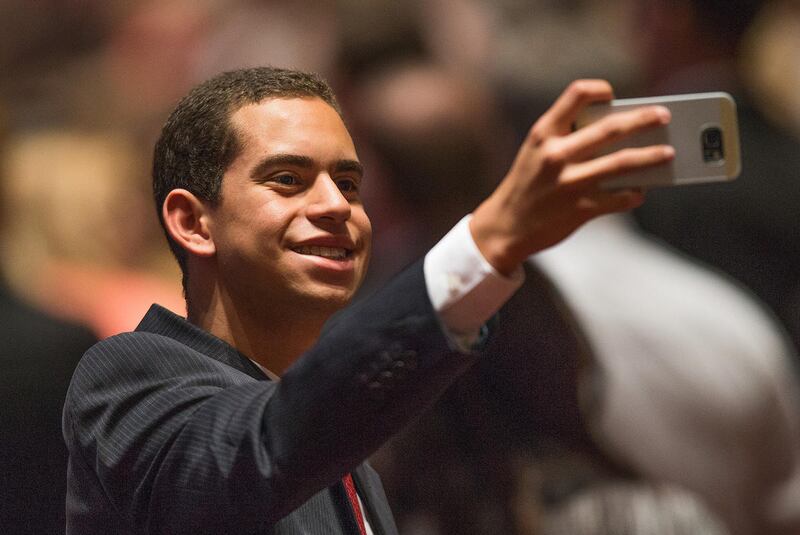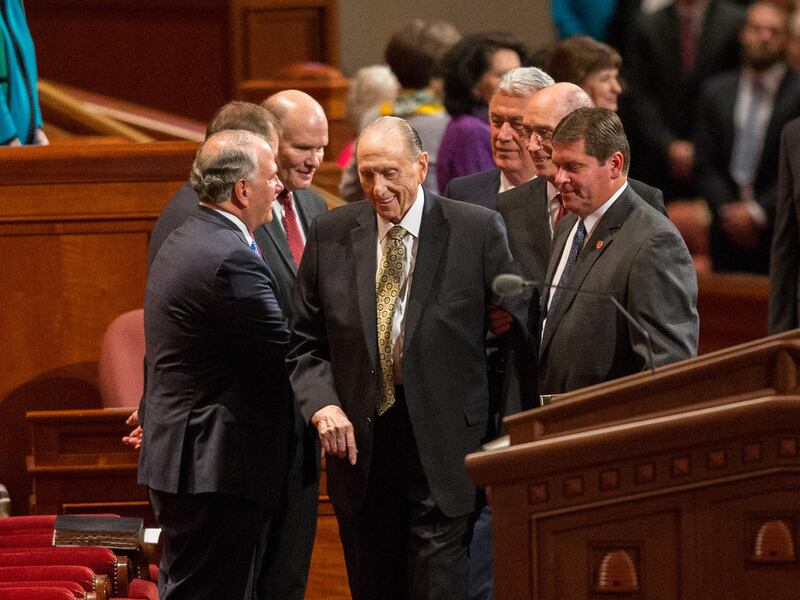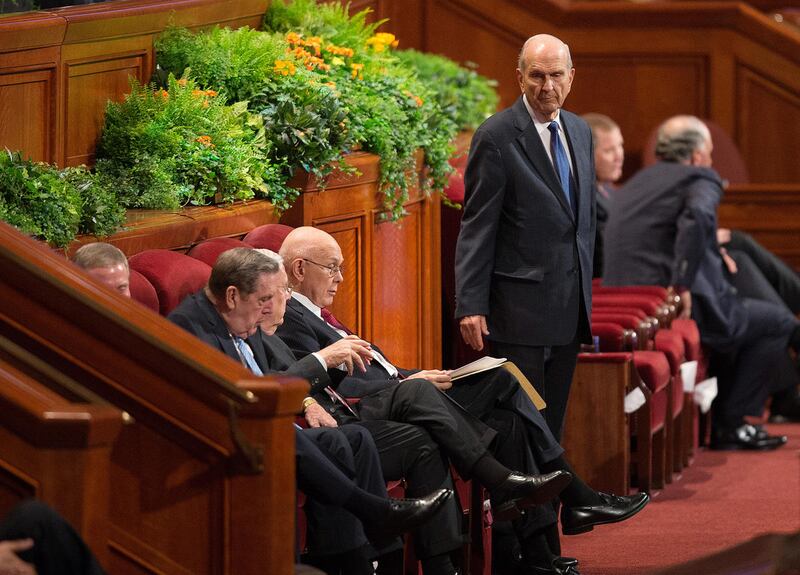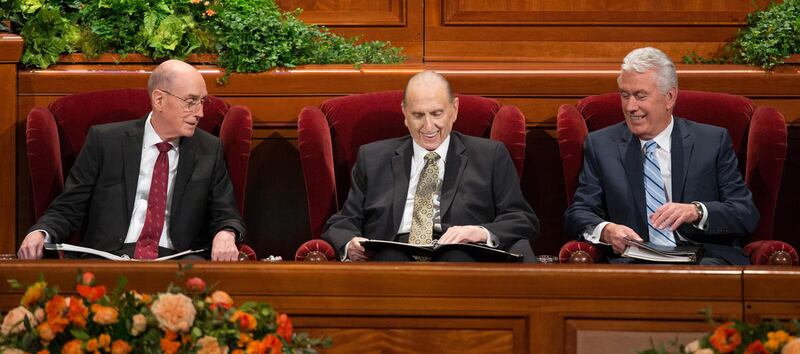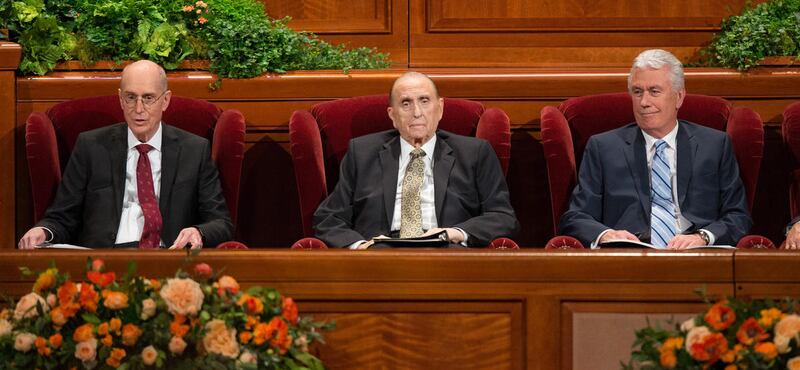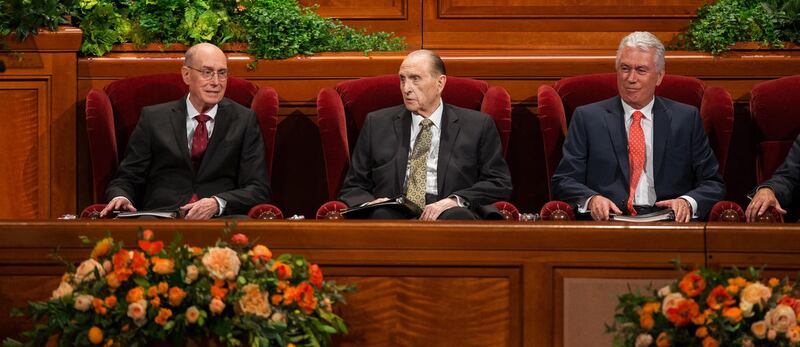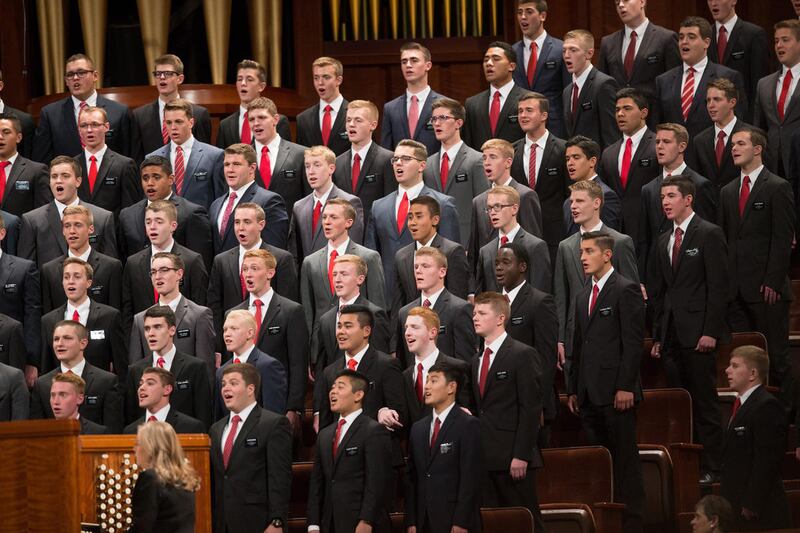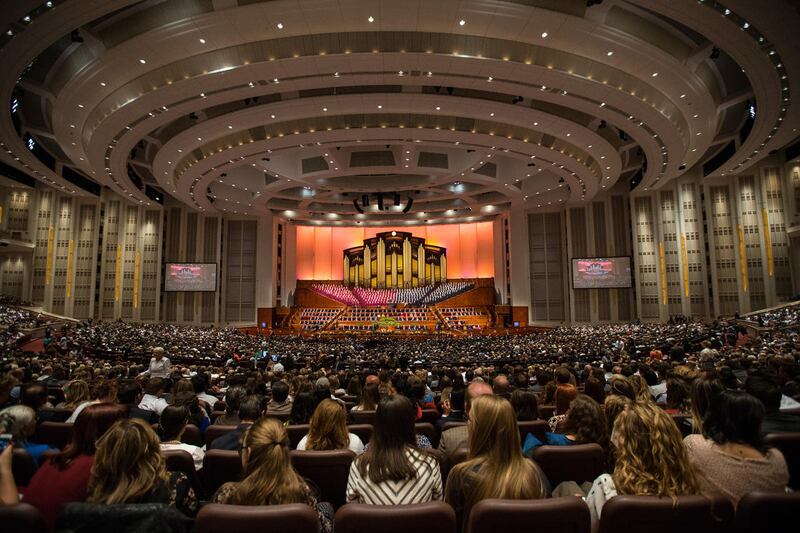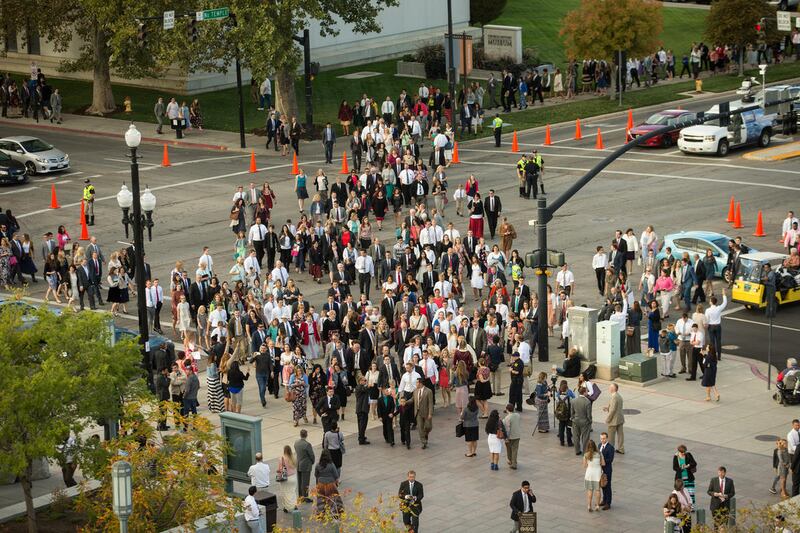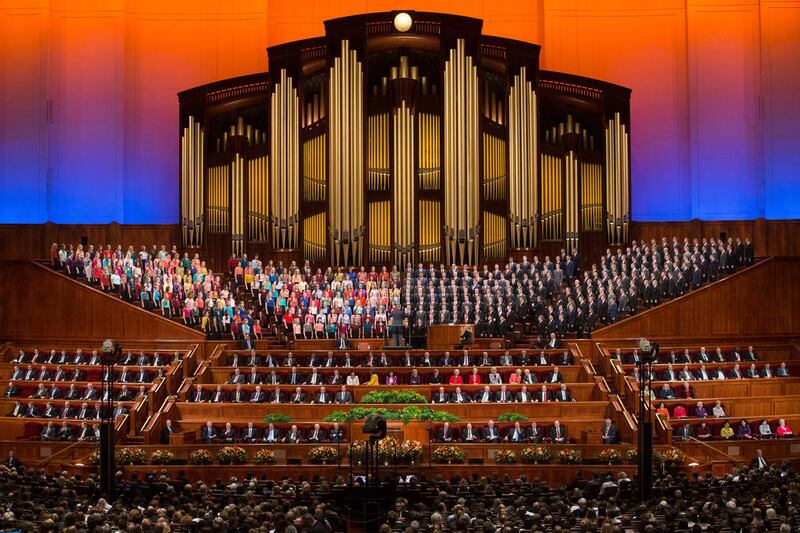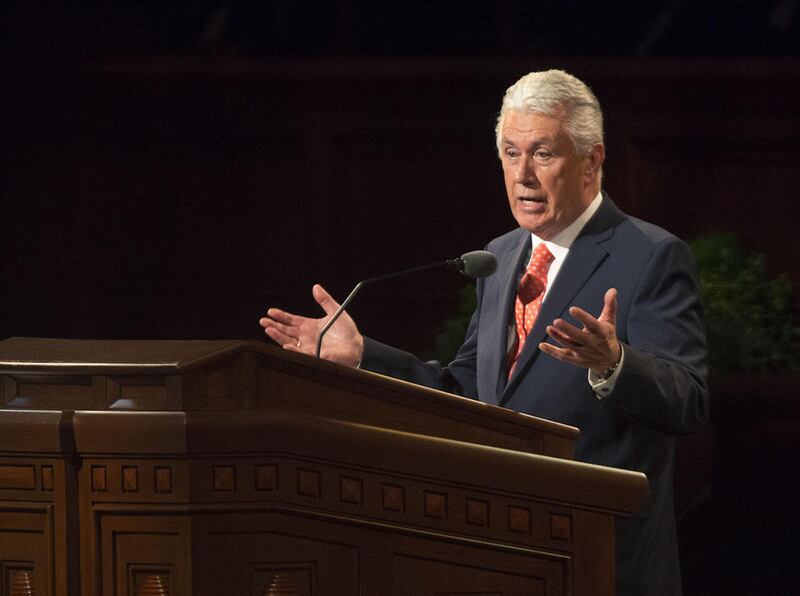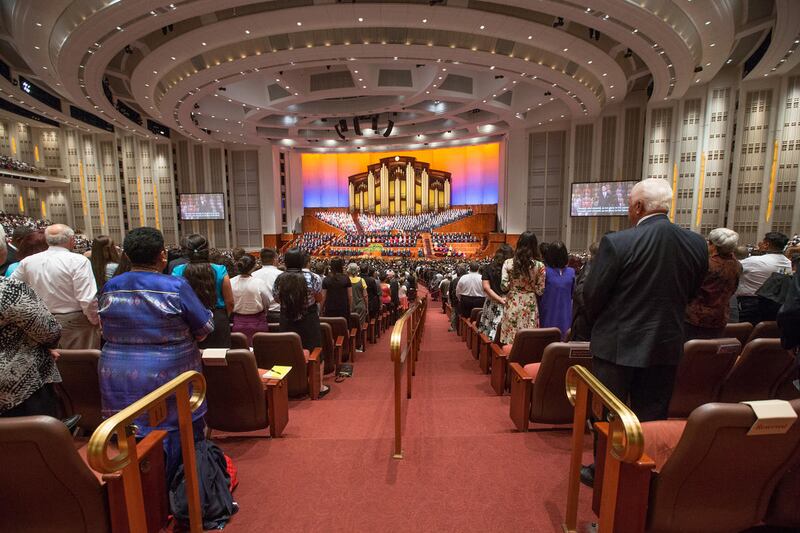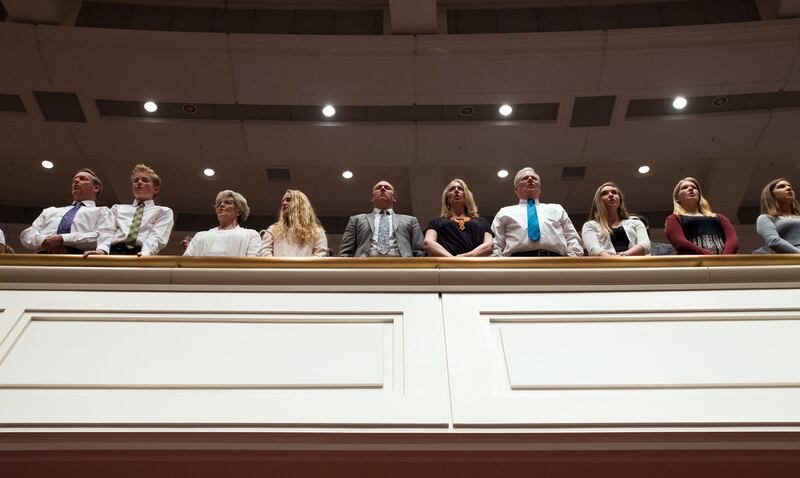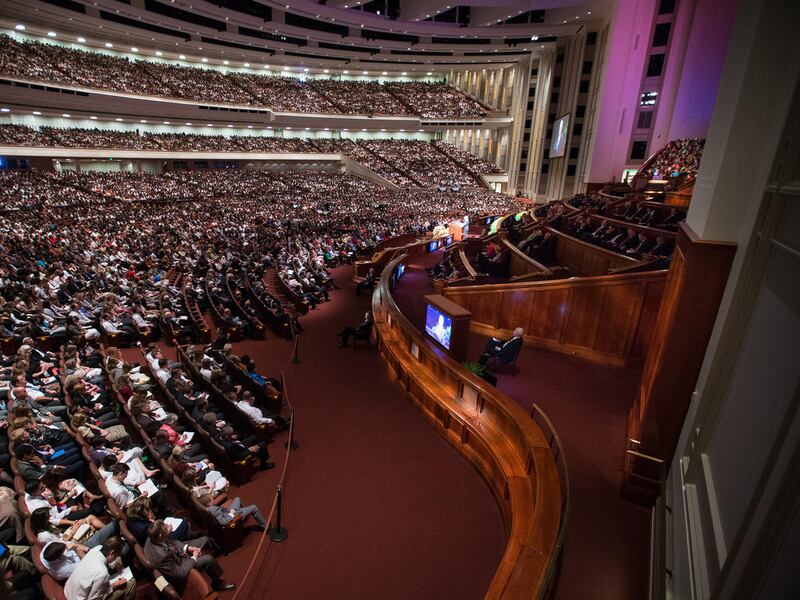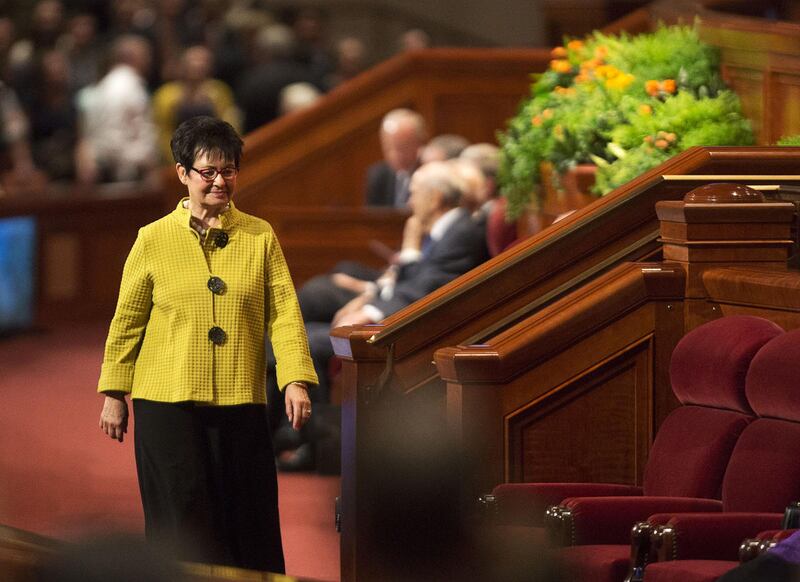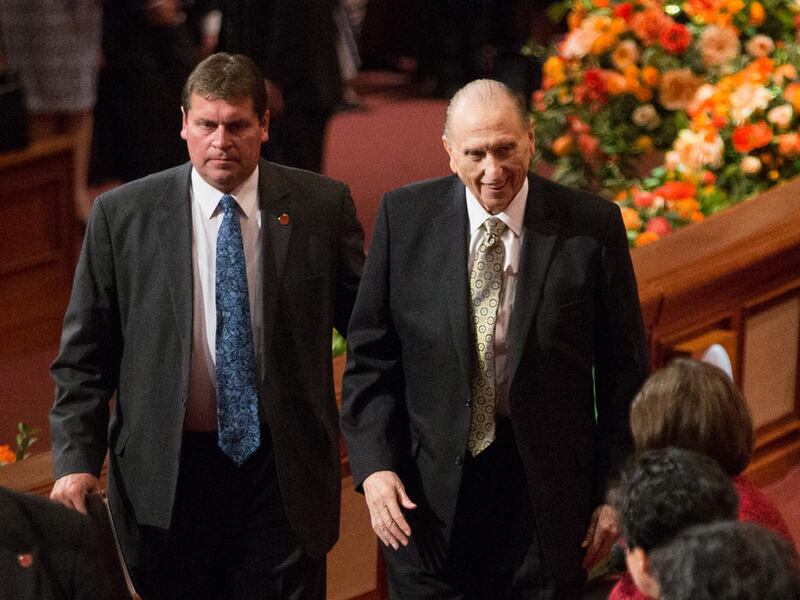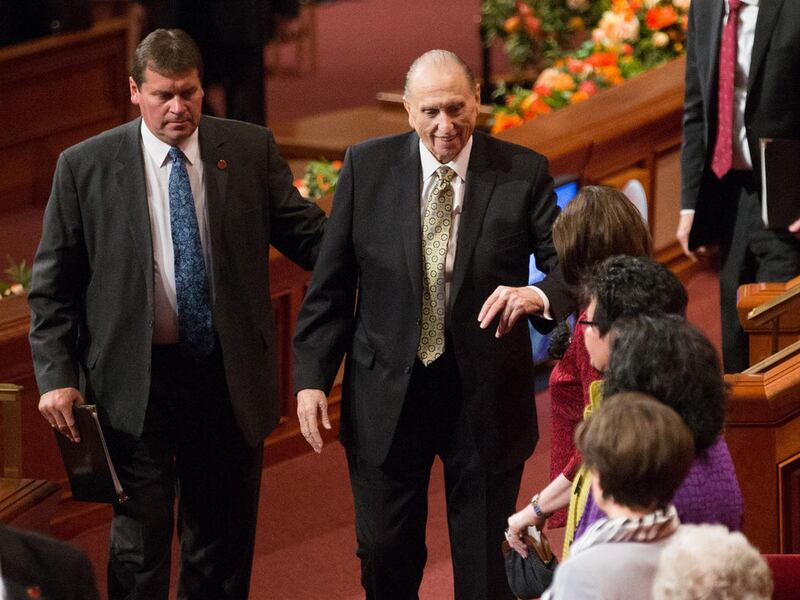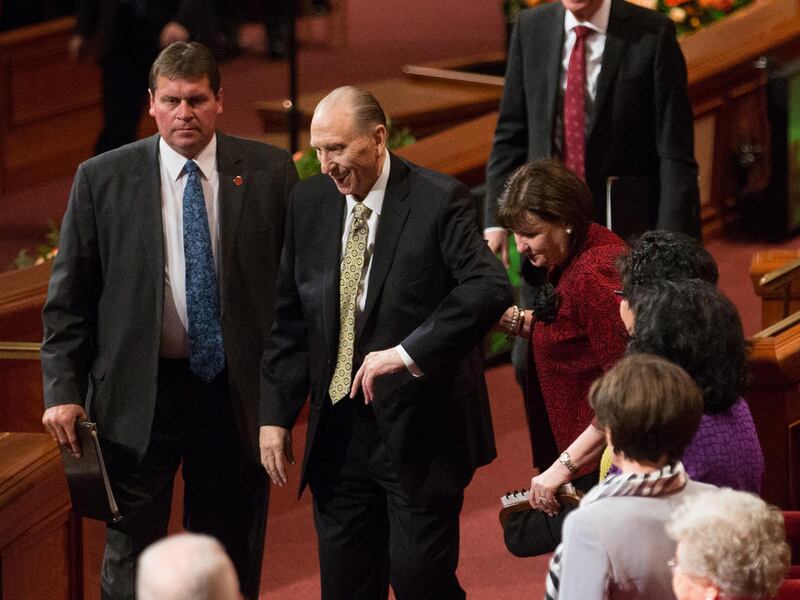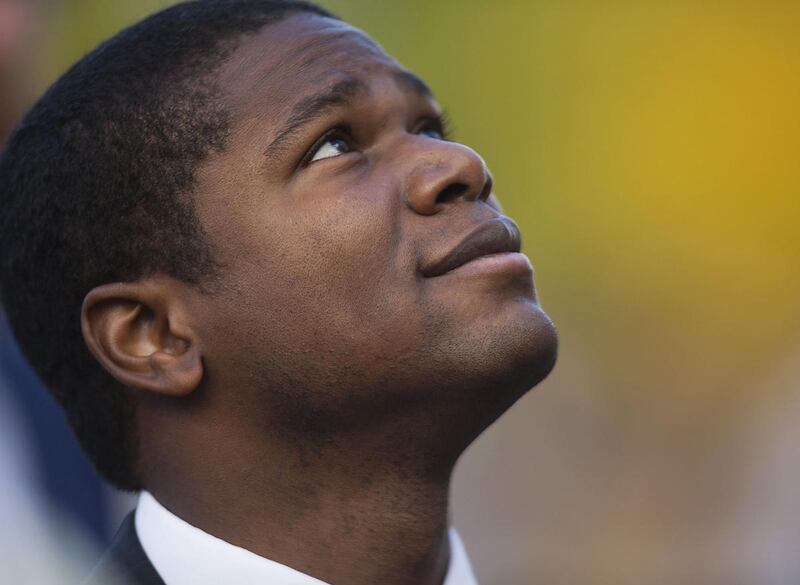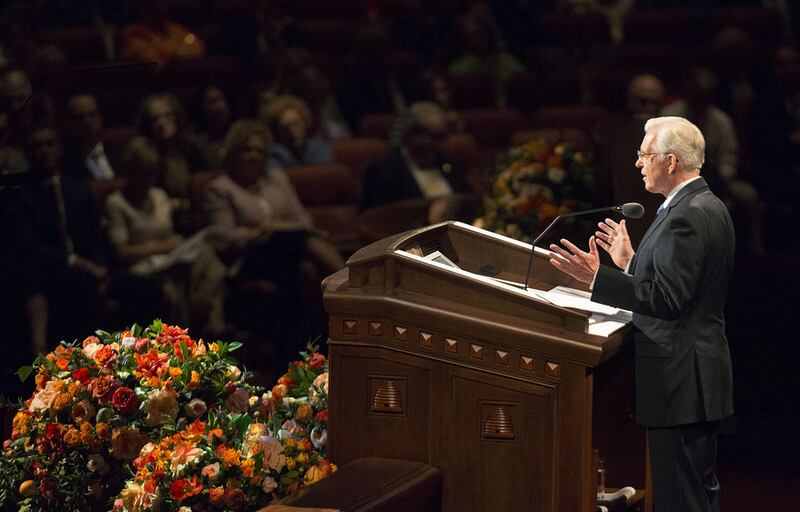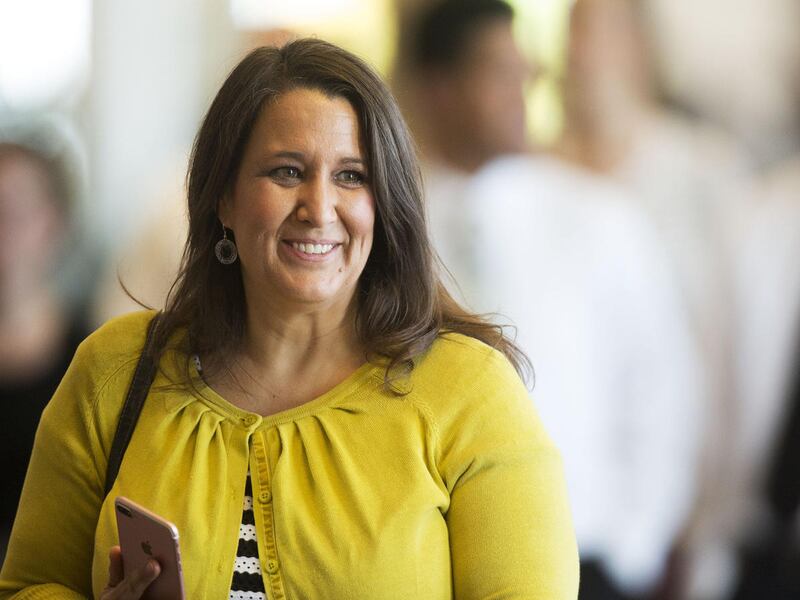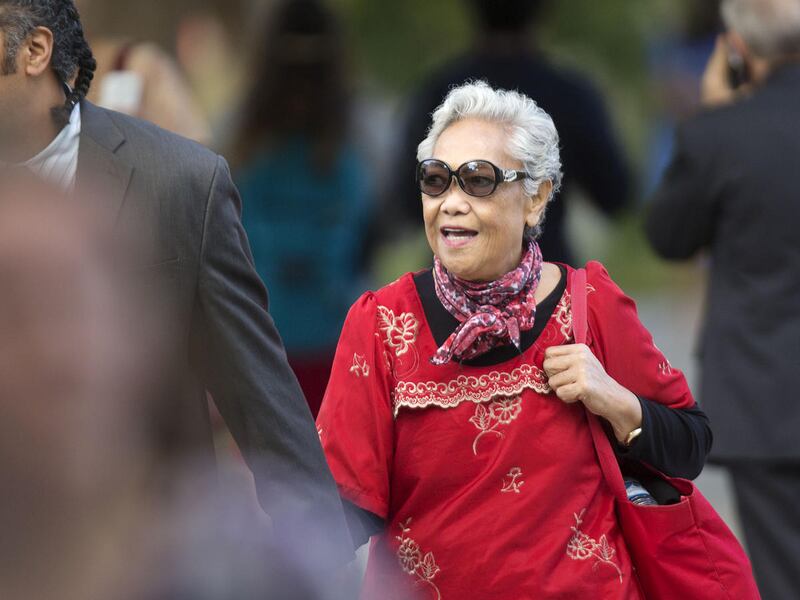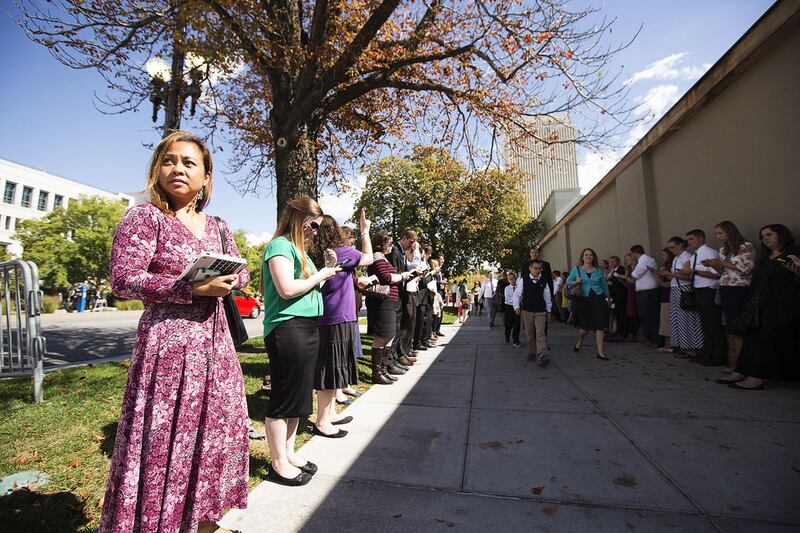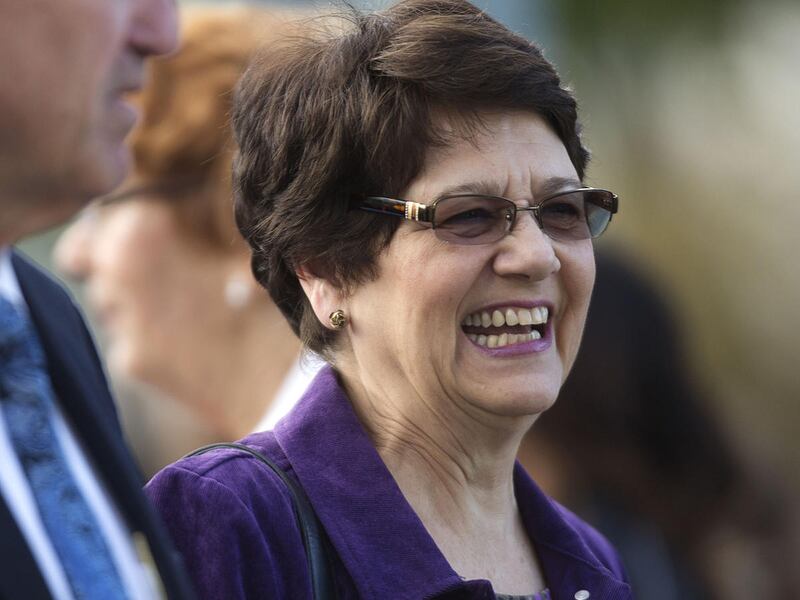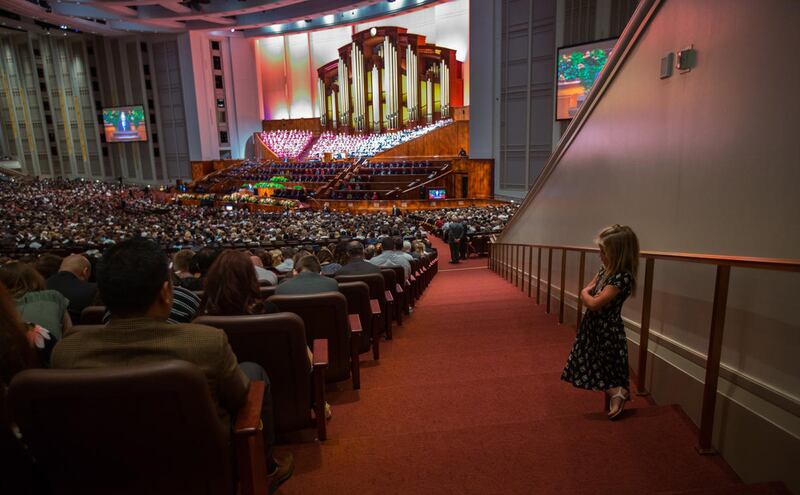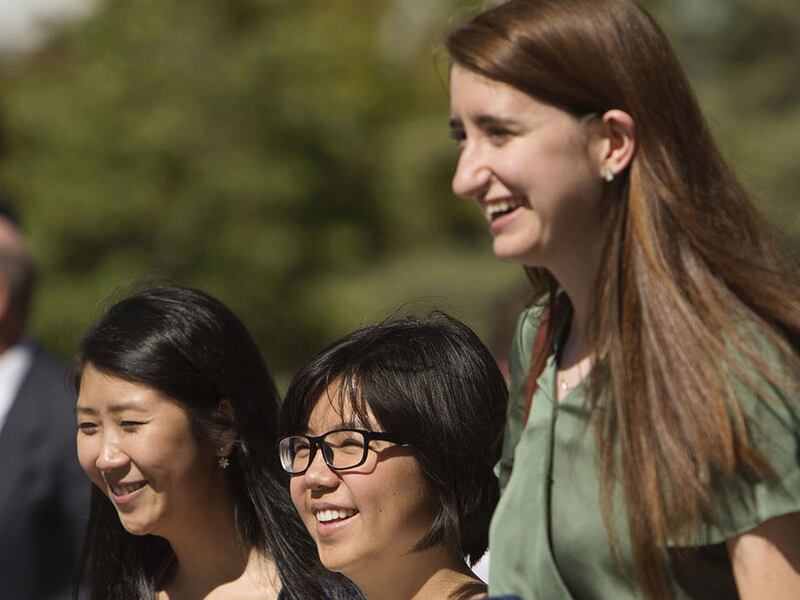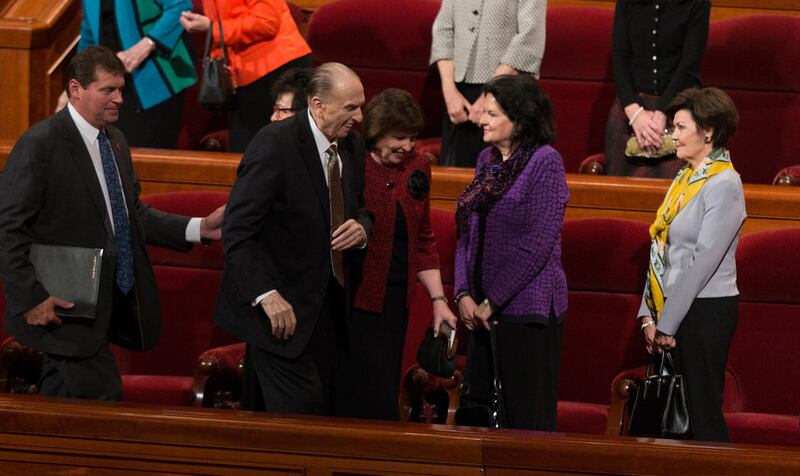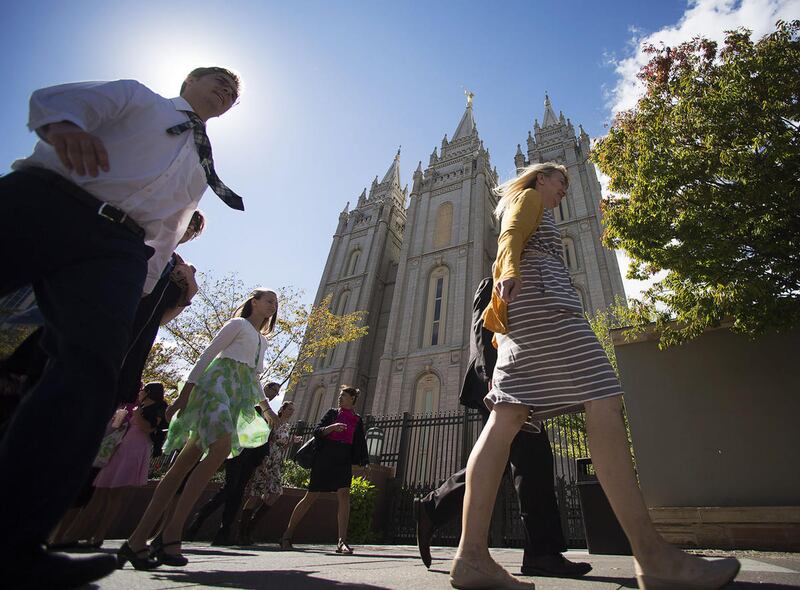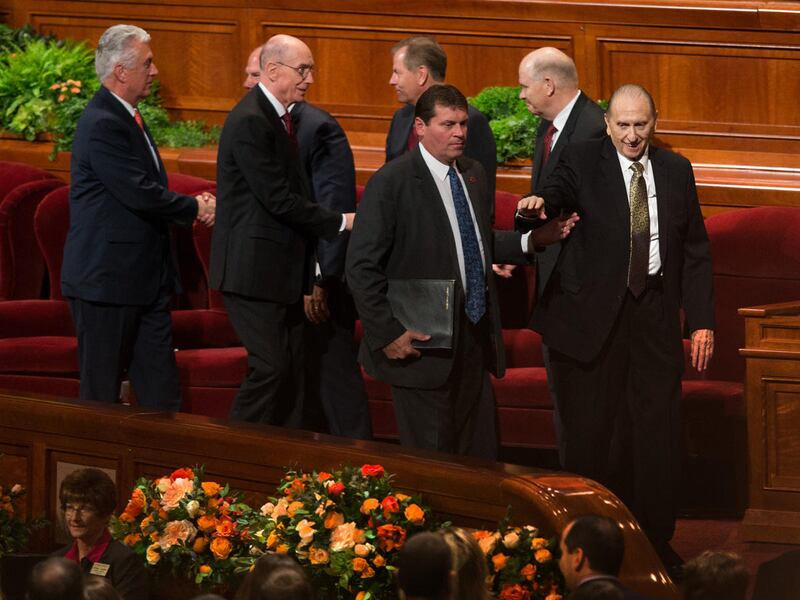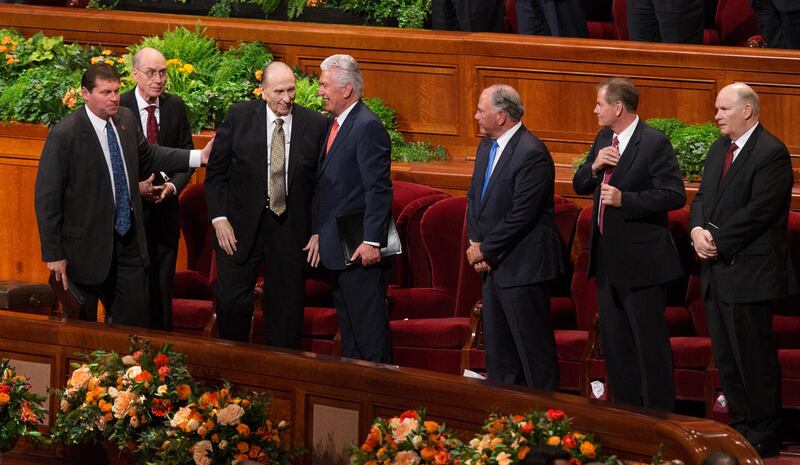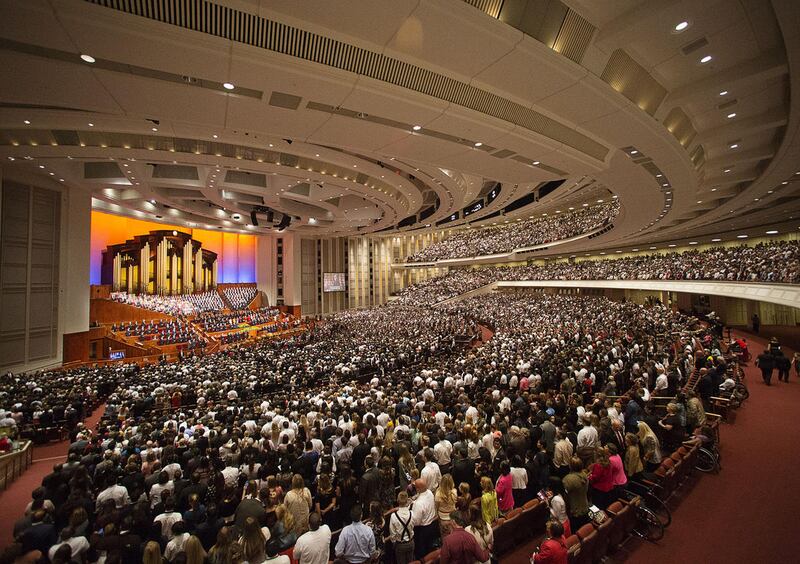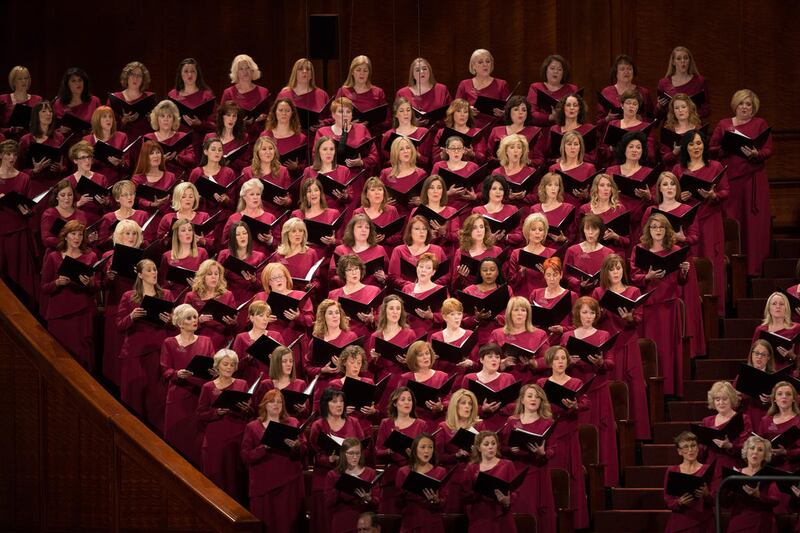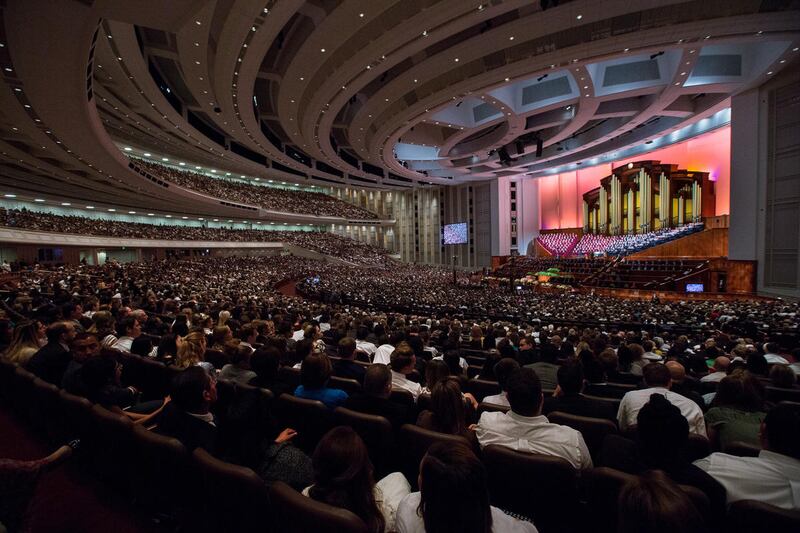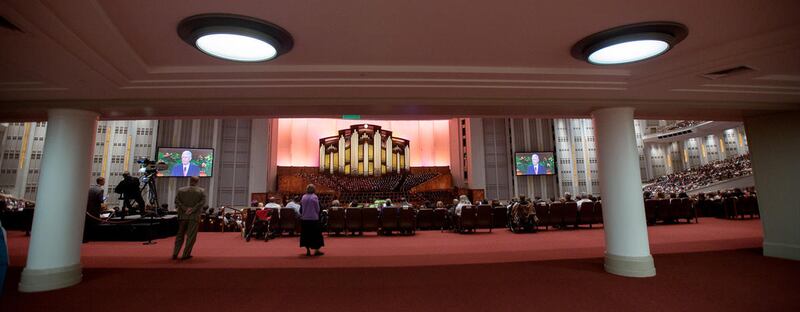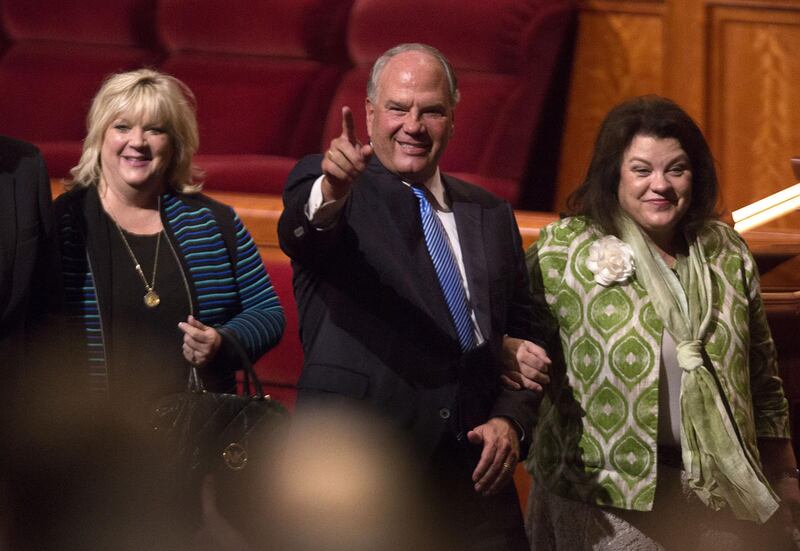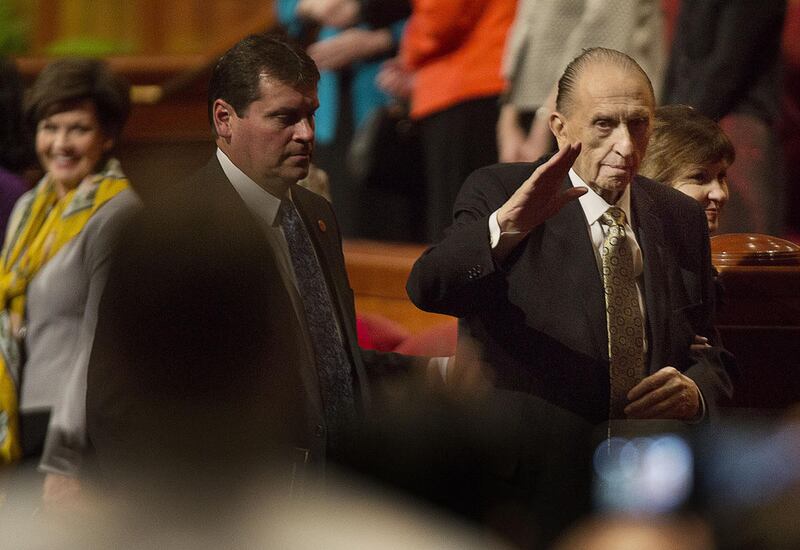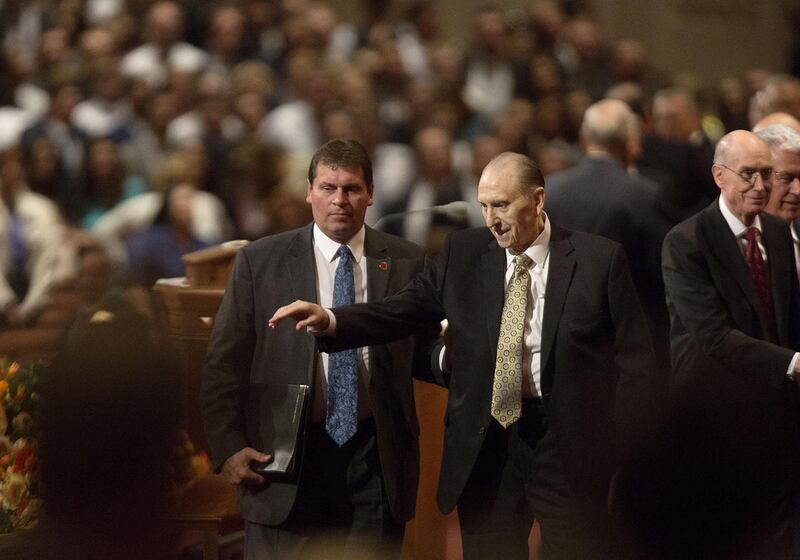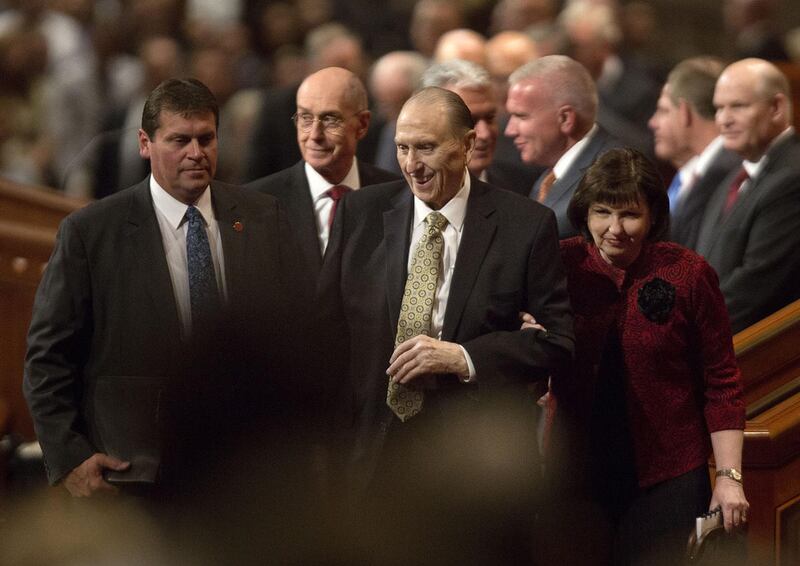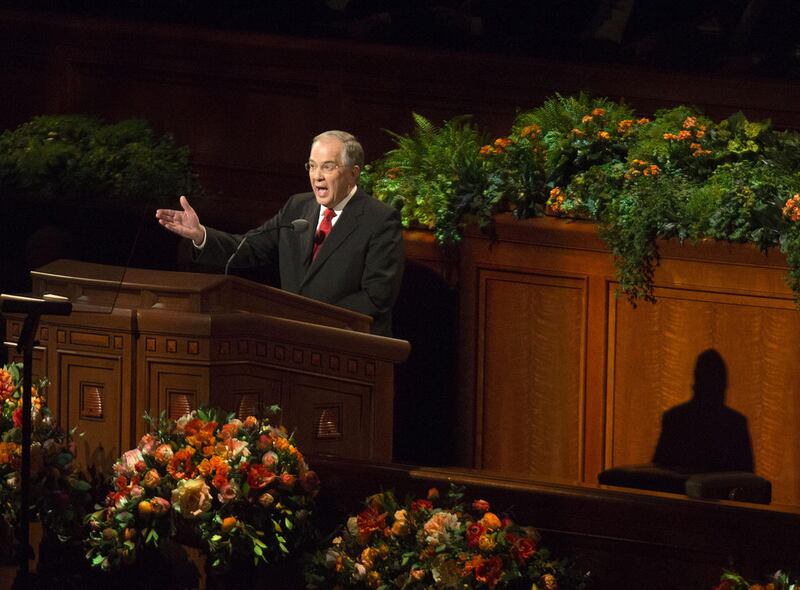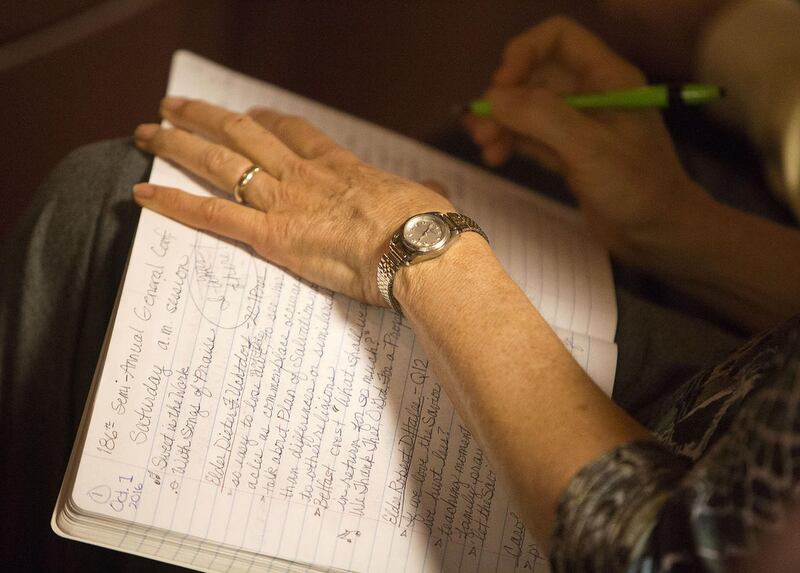SALT LAKE CITY — The global general conference of the LDS Church continued Saturday as leaders encouraged Mormons to learn, practice and share Christian love while guarding against taking their faith for granted.
"Let us turn more toward forgiveness, kindness and love," said Elder Robert D. Hales of the Quorum of the Twelve Apostles, who said Jesus Christ taught his disciples to replace contention with compassion. "Let us renounce the war that so often rages in the hearts of the natural man and proclaim Christ's caring, love and peace."
Millions in over 100 countries are participating in five Saturday and Sunday sessions of the 186th Semiannual General Conference of The Church of Jesus Christ of Latter-day Saints. The conference began Sept. 24 with the women's session.
Church President Thomas S. Monson, who turned 89 in August, gave a brief talk in front of 21,000 LDS men and boys gathered Saturday night for the priesthood session in the Conference Center in downtown Salt Lake City. He taught that the faith's Word of Wisdom is a divinely provided plan for healthy living.
A theme of love wove through many of the day's 18 talks. Leaders called on Mormons to be vigilant tending the flock of God and said their love for others and God should develop naturally into a desire to share what one called the "soul-expanding doctrine of the gospel of Jesus Christ."
Though some governments have restricted the work of Mormon missionaries, thousands join the LDS Church each week, said Elder Neil L. Andersen of the Twelve, because of what he said are noble, courageous church members who witness of God.
"Our concern for our brothers and sisters and our desire to please God bring a compelling urgency to share and strengthen the Kingdom of God across the world," he said.
Several leaders shared that sentiment while sharing healthy advice for judging one's own efforts.
Lord's emissaries
Elder Jeffrey R. Holland of the Twelve asked the church's priesthood holders during the Saturday night session "to love and care and pray for the people" they are assigned to home teach. Home teachers are assigned as the first source of help to each family in a congregation. Elder Holland characterized it as tending to the flock of God and called it on them to improve their personal priesthood ministry.
He shared the story of his friend Troy Russell, who accidentally backed his vehicle over his 9-year-old son. The boy died. Troy's home teacher, John Manning, "took over the priesthood care and keeping" of his friend, telling Troy he would continue to pick him up for basketball at 5:15 a.m. each day. As Troy talked and John listened and showed love for him each morning, Troy eventually found renewed strength.
"The appeal I am making tonight is for you to lift your vision of home teaching," Elder Holland said. "Please, in newer, better ways see yourselves as emissaries of the Lord to his children. ... We would hope that you would establish an era of genuine, gospel-oriented concern for each member, each individual, watching over and caring for each other, addressing spiritual and temporal needs in any way that helps."
Adult priesthood holders should lovingly and personally minister to boys, helping them cultivate their own ministerial potential, said President Henry B. Eyring, first counselor in the First Presidency. Boys supported by the power of the faith of their mothers also need many expressions of confidence from experienced men.
"We, holders of the priesthood," President Eyring said, "can and must add to that support with our determination to answer the charge that as we are converted, we are to reach down to strengthen our brethren."
Another example of personal ministry comes from the Book of Mormon, said President Dieter F. Uchtdorf, second counselor in the First Presidency. The prophet Alma asked for help from Amulek, whose faith had grown cold. Amulek responded and became Alma's companion as a preacher.
"In whatever position you currently serve," President Uchtdorf said Saturday night, "to be successful you must find your Amuleks. ... Let us seek out, find, inspire and rely upon the Amuleks in our wards and stakes. There are many Amuleks in the church today. Perhaps you know one. Perhaps you are one."
Path of diamonds
President Uchtdorf also spoke earlier Saturday and encouraged Mormons to maintain awe and gratitude for the gifts of the gospel and church membership.
"In this church, we have been given so much," he said, adding that "Life-changing truths are before our eyes and at our fingertips, but sometimes we sleepwalk on the path of discipleship. Too often we let ourselves be distracted by the imperfections of our fellow-members instead of following the example of our Master. We tread a path covered with diamonds, but we can scarcely distinguish them from ordinary pebbles."
President Uchtdorf issued an invitation to act on the motto of the Belfast Coat of Arms: "What shall we give in return for so much?"
"Let us in word and deed share with our fellowmen the amazing and awe-inspiring message of God’s plan of happiness," he said. "Let our motive be our love for God and for his children, for they are our brothers and sisters. This is the beginning of what we can do in return for so much."
One way church members take the gospel for granted is to trip over spiritual stumbling blocks, impediments to belief and progress, said Elder Quentin L. Cook of the Twelve. He listed three examples. Of the first — the philosophies of men — he said, "Historically, and in our own day, some people reject the gospel of Jesus Christ because in their view it doesn’t have adequate intellectual sophistication."
The other two obstacles for some are the refusal to see sin in its true light and looking beyond the mark, which he said includes gospel extremism.
"We cannot afford to have our testimonies of the Father and the Son become confused and complicated by stumbling blocks," Elder Cook said. "We cannot fall into that trap. Our testimonies of them need to remain pure and simple."
Perfect love
The best way to maintain simple testimonies and a gratitude for them is follow Christ's admonition to love God and our neighbor, church leaders said.
"As the Savior’s latter-day disciples, we come unto him by loving and serving God’s children," Elder Hales said.
The teachings about Christian love on Saturday included a doctrinal clarification of divine love. "Unconditional love" may be a popular phrase, but it is not scriptural nor is it the best descriptor of God's love in Mormon theology, said Elder D. Todd Christofferson of the Twelve.
"God’s greater blessings are conditioned on obedience," he said.
"The word 'unconditional' can convey mistaken impressions about divine love, such as, 'God tolerates everything and does not judge us because His love is unconditional,' or 'God makes no demands upon us because his love is unconditional,' or 'all are saved in the heavenly kingdom of God because His love is unconditional.' God’s love is infinite and it will endure forever, but what it means for each of us depends on how we respond to his love."
That response requires faith and obedience to his commandments, including repentance, he said, adding, "Repentance is his gift to us, purchased at a very dear price."
The infinite love and incomprehensible grace of God can be discovered in the Book of Mormon, said Elder Gary E. Stevenson of the Twelve.
"As you strive to follow the teachings you find there," he said, "your joy will expand, your understanding will increase, and the answers you seek to the many challenges mortality presents will be opened to you."
Practical sharing
Mormons honor Christ's love, and his teaching to love all as brothers and sisters, by sharing the restored gospel, said Elder Dallin H. Oaks of the Twelve.
"We should do this in ways that are authentic in loving concern for the individual," he said, adding that "what we call 'member missionary work' is not a program but an attitude of love and outreach to help those around us."
All Mormons should do three things, he said — pray for desire to help, keep the commandments to qualify as an example and for spiritual guidance, and pray for what they can do, personally.
They also should understand that those with whom they share are more interested in the results or effects of doctrine, not the doctrine itself, Elder Oaks said. They also are more interested in an invitation to learn more about Jesus Christ and his gospel than to learn more about a church.
Missionary mindset
Latter-day Saints should not judge themselves harshly or compare themselves to others, leaders said.
"Success in sharing the gospel is inviting people with love and genuine intent to help them, no matter what their response," Elder Oaks said.
Elder Andersen suggested Mormons stop feeling guilty about any self-perceived insufficiency.
"Please don’t see your efforts to share the love of the Savior with another as a pass/fail test with your grade determined by how positively your friends respond to your feelings or invitation to meet the missionaries," he said. "With our mortal eyes, we cannot judge the effect of our efforts, nor can we establish the timetable. When you share the love of the Savior with another, your grade is always an 'A+'."
Latter-day Saints should stop comparing themselves to others at all, said Elder J. Devn Cornish of the Seventy.
"We torture ourselves needlessly by competing and comparing," he said. "If we must compare, let us compare how we were in the past to how we are today, and even to how we want to be in the future. ...
"If you will really try and will not rationalize or rebel, repenting often and pleading for the grace or help of Christ, you positively are going to be 'good enough,' that is, acceptable before the Lord; you are going to make it to the celestial kingdom being perfect in Christ; and you are going to receive the blessings and glory and joy that God desires for each of His precious children — including specifically you and me."
Email: twalch@deseretnews.com

